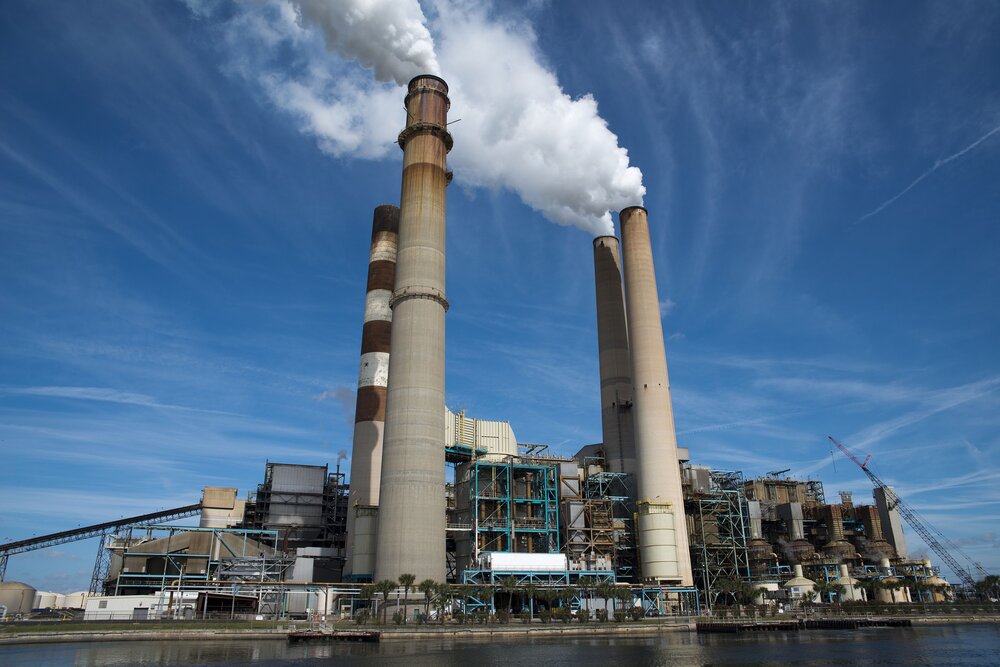
Without govt. support private power plants at risk of shutting down

According to the country’s Energy Ministry, currently, over two-third of Iran’s thermal power plants are owned and operated by the private sector and almost all of the country’s renewable power plants are operated by the mentioned sector.
The mentioned companies, however, have been recently wrestling with serious problems since according to them the tariffs based on which the government is purchasing their generated electricity does not event suffices the expenditures, let alone their dues to the National Development Fund (NDF) or the Foreign Currency Reserve Fund which have to be paid in the form of foreign currencies.
Therefore, many such power plants are at the risk of shutting down amid the summer peak consumption period when the country is facing a skyrocketing consumption pattern and blackouts are on the horizon.
Last week, the board members of Iranian Syndicate of Power Generating Companies gathered at the place of Iran Chamber of Commerce, Industries, Mines and Agriculture (ICCIMA) to discuss the situation and voice their concerns to the representative body of the country’s private sector.
In this regard, the Tehran Times had an interview with ICCIMA Energy Committee Hamidreza Salehi to see how the government can support this sector and prevent the drastic consequences of power plants going off.
According to Salehi, the government currently owes the power plant owners over 300 trillion rials (about $7.4 billion), and if the government pays those dues many of the problems of the mentioned companies will be solved.
“Considering the fact that the value of rial is getting lower compared to the U.S. dollar and euro, and since power plants sell their electricity in rials, they are gaining much less than what they have to pay back to the NDF or Foreign Currency Reserve Fund,” Salehi said.
Asked about the Oil Ministry’s recent proposal for paying contractors’ dues with oil, the expert said, of course, any payment would be a step forward from the current situation, however, there must be a third party or a mediator who would be able to sell this oil abroad and turn it to foreign currency for the companies, otherwise it won’t be a “great” solution.
The idea for bartering oil for dues first was introduced in summer 2019 when the oil ministry proposed to pay the dues of oil companies that worked on oil and gas development projects with oil.
Then the idea was welcomed by the government and expanded to other sectors like electricity.
In spring 2019, the government’s regulatory body prepared a draft based on which, nearly 400 trillion rials (about $9.52 billion) worth of oil was going to be given to the private companies in return for the electricity that they provided for the national network, or for the services that the contractors provided for the Energy Ministry.
“Unfortunately, the program has not even been implemented for the oil companies which work under the Oil Ministry, so we can only be hopeful that it will go through this time,” Salehi said in this regard.
The energy expert further mentioned the recent developments in the capital market and emphasized it as a great opportunity for the energy sector to tap into, for managing financial issues.
“Another measure that government can take to support this sector is to back them in entering the capital market,” he stressed.
According to the official, the Securities and Exchange Organization (SEO) requires those companies which are willing to enter the market to provide heavy guarantees and since most of the mentioned power plant companies are not able to provide such guarantees the government can step up and provide the SEO with the required guarantees so that the companies could offer their shares at the market and attract public investment.
“There are many well-known energy companies that are already active in the market and energy companies have proven that can earn the people’s trust and be trustworthy, so the government needs to trust them as well,” he added.


Trump weighs using $2 billion in CHIPS Act funding for critical minerals

Codelco cuts 2025 copper forecast after El Teniente mine collapse

Electra converts debt, launches $30M raise to jumpstart stalled cobalt refinery

Barrick’s Reko Diq in line for $410M ADB backing

Abcourt readies Sleeping Giant mill to pour first gold since 2014

Nevada army depot to serve as base for first US strategic minerals stockpile

SQM boosts lithium supply plans as prices flick higher

Viridis unveils 200Mt initial reserve for Brazil rare earth project

Tailings could meet much of US critical mineral demand – study

Kyrgyzstan kicks off underground gold mining at Kumtor

Kyrgyzstan kicks off underground gold mining at Kumtor

KoBold Metals granted lithium exploration rights in Congo

Freeport Indonesia to wrap up Gresik plant repairs by early September

Energy Fuels soars on Vulcan Elements partnership

Northern Dynasty sticks to proposal in battle to lift Pebble mine veto

Giustra-backed mining firm teams up with informal miners in Colombia

Critical Metals signs agreement to supply rare earth to US government-funded facility

China extends rare earth controls to imported material

Galan Lithium proceeds with $13M financing for Argentina project

Kyrgyzstan kicks off underground gold mining at Kumtor

Freeport Indonesia to wrap up Gresik plant repairs by early September

Energy Fuels soars on Vulcan Elements partnership

Northern Dynasty sticks to proposal in battle to lift Pebble mine veto

Giustra-backed mining firm teams up with informal miners in Colombia

Critical Metals signs agreement to supply rare earth to US government-funded facility

China extends rare earth controls to imported material

Galan Lithium proceeds with $13M financing for Argentina project

Silver price touches $39 as market weighs rate cut outlook

















